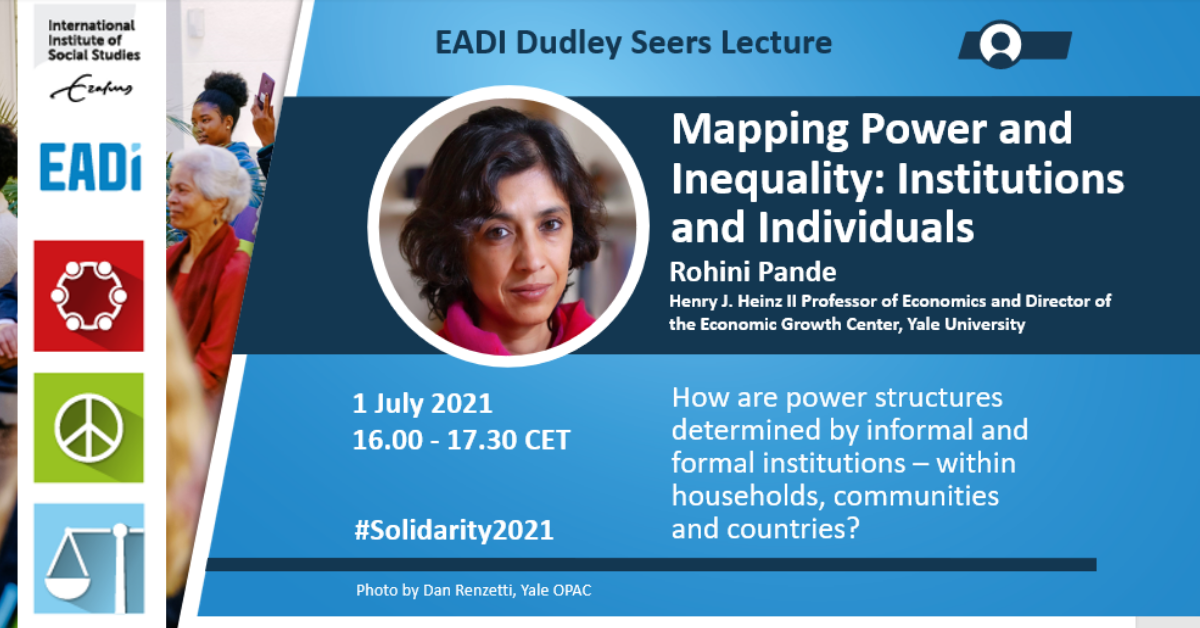EADI News – June
News
EJDR Seeks Two Co-Editors
The European Journal of Development Research (EJDR) is seeking to recruit two new co-Editors to join its Editorial Team: One with expertise in International Development Practice, and one with expertise in the Sociological and Anthropological perspective and analysis of International Development. Deadline for applications is 31 July 2021
Read the call for expression of interest.
From the EADI Blog
Margit van Wessel argues that “despite all the interest in localization, and the acceptance that many important changes need to take place at country level rather than only in the Global North or international levels, there is little attention to how advocacy works in different national and sub-national contexts.” This “perpetuates the idea that experience and systematized expertise built in the Global North is the only game in town when it comes to required advocacy knowledge and skills.” And it “fails to acknowledge existing context-geared advocacy knowledge and skills in the Global South.” To change this, she and her colleagues have collected five stories from South Sudan, Nigeria, Burundi, Central African Republic and Afghanistan to show how engagement with the context of fragility shapes effective advocacy. Read the post.
Event: Pre-Conference Dudley Seers Lecture: 1 July, 16.00 CET
Rohini Pande’s talk will explore how power structures – within households, communities and countries – are determined by informal and formal institutions. Read more and register

New: COST Action on Decolonising Development
We are happy that several members of our Executive Committee are engaged in the management of the new four-year project Decolonising Development hosted by Kassel University, which will work on reconstructing the concept and practice of development after its deconstruction. It aims for a resetting and diversification of the actors, structures, institutions and spaces in which knowledge about and for development is produced, shared contested and put into practice. A first blog post describes what the project can, and what it cannot achieve. Read more.
Highlight: Child Poverty and Social Protection in Africa
The open access book “Child Poverty and Social Protection in Central and Western Africa” by the Global Research Programme on Inequality (GRIP) assesses various child poverty trends in the region. Child poverty is distinct, conceptually, and different, quantitatively, from adult poverty. It requires its own independent measurement—otherwise half of the population in developing countries may be unaccounted for when assessing poverty reduction. This book posits that child poverty should be measured based on constitutive rights of poverty, using a multi-dimensional approach. The argument is supported by chapters actually applying and expanding this approach. Read more
